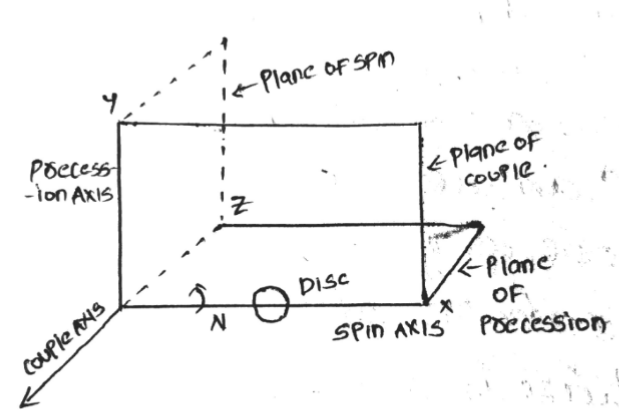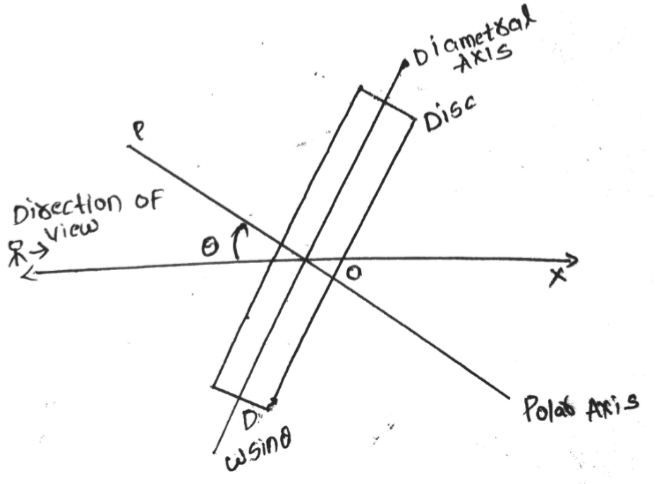What is Hydraulic System?
A hydraulic system is a type of mechanical system that uses pressurized fluid to transmit and amplify forces. It consists of a pump, a fluid reservoir, and a system of tubes and valves that control the flow of fluid.
In a hydraulic system, the pump pressurizes the fluid and pushes it through the system. The fluid then flows through the tubes and valves to actuate mechanical devices, such as cylinders or motors. The fluid exerts a force on these devices, which can be used to do work, such as lifting a load or moving a machine component.
Hydraulic systems are widely used in a variety of applications, including construction equipment, aircraft, automobiles, and industrial machinery. They are known for their high power-to-weight ratio, as well as their ability to transmit force over long distances with minimal loss of energy.
Hydraulic systems are also used in some braking systems, where they are used to apply pressure to the brake pads or shoes in order to stop the vehicle. They are also used in some power steering systems, where they are used to apply force to the steering mechanism in order to make it easier for the driver to steer the vehicle.
Hydraulic System Working Principle
The working principle of a hydraulic system is based on the transmission of force through a pressurized fluid. A hydraulic system consists of a pump, a fluid reservoir, and a system of tubes and valves that control the flow of fluid.
Here is a summary of the working principle of a hydraulic system:
- The pump pressurizes the fluid and pushes it through the system.
- The pressurized fluid flows through the tubes and valves to actuate mechanical devices, such as cylinders or motors.
- The fluid exerts a force on these devices, which can be used to do work, such as lifting a load or moving a machine component.
- The fluid is then returned to the reservoir, where it is cooled and stored until it is needed again.
In a hydraulic system, the pump is responsible for pressurizing the fluid and delivering it to the mechanical devices. The fluid reservoir stores the fluid until it is needed, and the tubes and valves control the flow of fluid and direct it to the appropriate mechanical devices.
Hydraulic systems are widely used in a variety of applications, including construction equipment, aircraft, automobiles, and industrial machinery. They are known for their high power-to-weight ratio, as well as their ability to transmit force over long distances with minimal loss of energy.
Principle behind the operation of a hydraulic system?
A hydraulic system is a type of mechanical system that uses a fluid, such as oil or water, to transmit and amplify force. The principle behind the operation of a hydraulic system is based on the fact that a fluid is nearly incompressible, meaning that it is difficult to compress or reduce in volume. This property allows a hydraulic system to transmit force from one location to another without significant loss of pressure.
In a hydraulic system, a pump is used to pressurize the fluid and move it through a series of pipes or hoses. The pressurized fluid is then transmitted to a hydraulic actuator, such as a cylinder or a hydraulic motor, which converts the fluid pressure into mechanical force. The hydraulic actuator is connected to a load, such as a hydraulic press or a hydraulic lift, which is moved by the force of the actuator.
One of the main advantages of hydraulic systems is that they are able to transmit large amounts of force over long distances with relatively little loss of pressure. This makes them well-suited for applications where large forces are needed, such as in construction equipment or aircraft landing gear.
Hydraulic systems can also be used to amplify force. For example, a small movement of a hydraulic piston can be used to produce a much larger movement of a load. This is accomplished by using a hydraulic cylinder with a larger diameter or by using a hydraulic multiplier, which is a device that multiplies the force of the actuator.
Overall, the operation of a hydraulic system relies on the principle of fluid pressure and the ability of a fluid to transmit force without significant loss of pressure. This allows hydraulic systems to be used in a wide range of applications where large forces are needed.
Advantages of Hydraulic System?
There are several advantages to using hydraulic systems:
- High power-to-weight ratio: Hydraulic systems can transmit large forces with relatively small components, making them ideal for applications where weight is a concern, such as in aircraft and automobiles.
- Long-distance force transmission: Hydraulic systems can transmit force over long distances with minimal loss of energy, making them suitable for applications where mechanical components need to be separated by large distances.
- Good response time: Hydraulic systems can respond quickly to changes in pressure, allowing them to be used in applications that require fast and precise control.
- Compact size: Hydraulic systems can be made compact and lightweight, making them suitable for use in small spaces.
- Simple to maintain: Hydraulic systems are relatively simple and easy to maintain, as they have fewer moving parts compared to other types of mechanical systems.
- Versatility: Hydraulic systems can be used to perform a wide range of tasks, including lifting, moving, and rotating objects. They can also be used to apply force to a variety of mechanical devices, such as cylinders, motors, and actuators.
- Durability: Hydraulic systems are generally very durable and reliable, with a long service life. They are also resistant to wear and tear, making them suitable for use in demanding environments
Disadvantages of Hydraulic System?
There are also several disadvantages to using hydraulic systems:
- Complexity: Hydraulic systems can be more complex to design and operate compared to other types of mechanical systems, as they involve the use of pressurized fluid and require specialized components such as pumps and valves.
- High cost: Hydraulic systems can be more expensive to purchase and maintain compared to other types of mechanical systems, due to the specialized components and the need for frequent maintenance.
- Fluid leakage: Hydraulic systems are prone to fluid leakage, which can lead to environmental contamination and reduced system efficiency.
- Fluid contamination: Hydraulic systems are sensitive to fluid contamination, which can cause damage to the system and reduce its performance.
- Limited power density: Hydraulic systems have a limited power density compared to other types of mechanical systems, meaning that they are not as efficient in terms of space utilization.
- Risk of explosion: Hydraulic systems can pose a risk of explosion if the pressurized fluid is not properly contained and controlled.
- Vulnerability to weather: Hydraulic systems can be vulnerable to weather-related issues, such as freezing or overheating, which can lead to system failure.
Uses of Hydraulic System?
Hydraulic systems are used in a wide range of applications where precise and reliable control of force is required. Some common uses of hydraulic systems include:
- Lifting and moving heavy objects: Hydraulic systems are often used in construction equipment and other machinery to lift and move heavy loads. For example, hydraulic cylinders and jacks are used to lift and support buildings during construction or repair.
- Operating machine tools: Hydraulic systems are used to operate machine tools, such as press brakes and shears, which require precise and powerful force to cut and shape metal.
- Controlling aircraft and spacecraft: Hydraulic systems are used to operate the control surfaces of aircraft and spacecraft, such as flaps, rudder, and landing gear.
- Operating automotive components: Hydraulic systems are used in automobiles to operate brakes, suspension, and steering systems.
- Industrial machinery: Hydraulic systems are used in a variety of industrial machinery, including cranes, conveyors, and packaging equipment.
- Marine equipment: Hydraulic systems are used in marine equipment, such as ship propellers, anchors, and winches.
- Medical equipment: Hydraulic systems are used in medical equipment, such as hospital beds and patient lifts.
- Agricultural machinery: Hydraulic systems are used in a variety of agricultural machinery, including tractors, harvesters, and irrigation equipment.
Tags: Hydraulic System, Working Principle of Hydraulic system, Advantages of Hydraulic System, Disadvantages of Hydraulic System & Uses of of Hydraulic System

